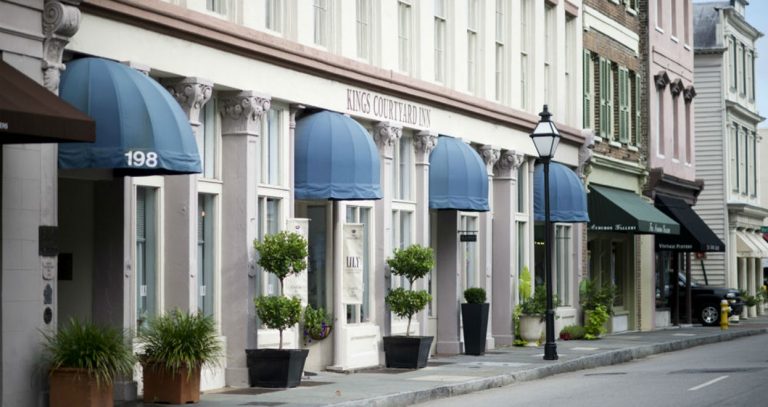

There’s much more to Charleston’s history than its eye-catching antebellum homes. What the Gullah of South Carolina’s Lowcountry lack in visible landmarks they make up for with rich traditions—they have their own language, a combination of English and African influences, and distinct music, art, and cuisine. The Gullah culture is the focus of the annual Sweetgrass Festival in early June, and the inspiration for this itinerary created by Betty Jo Currie of Currie & Co. Travels. While the annual daylong festival, which will be held next on Saturday, June 2, 2018 in Mt. Pleasant’s Waterfront Park, is at the heart of Betty Jo’s trip, she also includes opportunities to understand Gullah culture within the broader histories of Charleston’s African-American community and the city and region generally.

You will be greeted at the airport upon your arrival and transferred to your choice of one of two historic properties. The John Rutledge House Inn on Broad Street is the only inn in the country that was once the home of a signer of the Constitution. The building’s architectural details have been lovingly restored, in a property that celebrates Charleston’s past. Or you can choose to stay at the Kings Courtyard Inn on King Street, which dates from 1853. The wide-plank floors and oriental rugs reflect the hotel’s long history, while the Southern hospitality of its staff is timeless.
You’ll dine tonight at McCrady’s Tavern, where George Washington was hosted by the Society of the Cincinnati in 1791 on his tour of the South. The tavern has, of course, changed hands many times since the presidential visit. Today it is run by one of Charleston’s most celebrated chefs, Sean Brock, who serves classic dishes using the best local ingredients.

The day before the Sweetgrass Festival, you will get an overview of the city’s African-American history, from slavery to the present day. You’ll depart from your hotel on a morning walking tour that will focus on sites associated with the city’s African-American heritage: the Old Slave Mart, the sweetgrass stalls at the Charleston City Market, and the Emanuel African Methodist Episcopal Church. You’ll also see works by Philip Simmons, an acclaimed blacksmith who died in 2009 and whose ornamental gates and balconies grace many of Charleston’s homes.
In the afternoon you’ll visit the McLeod Plantation on James Island on a private tour. In the early 18th century, many plantation owners chose to live in Charleston while African-American managers oversaw their farms here on the island. This allowed African traditions to continue and Gullah culture to thrive. It’s still possible to this day to hear Gullah spoken on James Island. A lunch featuring typical Gullah dishes will be served on the grounds of the plantation.
You will return to Charleston late in the day and have the evening at your leisure.